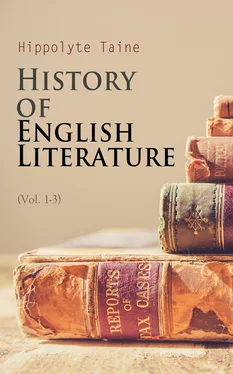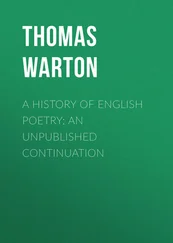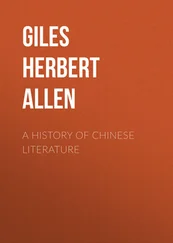[326]Ibid, sonnet 43, p. 545.
[327]"Astrophel and Stella" (1629), sonnet 18, p. 573.
[328]Ibid, last sonnet, p. 539.
[329]Nathan Drake, "Shakspeare and his Times," I. Part 2, ch. 2, 3, 4. Among these 233 poets the authors of isolated pieces are not reckoned, but only those who published or collected their works.
[330]Drayton's "Polyolbion," ed. 1622, 13th song, p. 214.
[331]Shakespeare's "Tempest," act IV. 1.
[332]Ibid, act IV. 2.
[333]Greene's Poems, ed. Bell, "Eurymachus in Laudem Mirimidæ," p. 73.
[334]Ibid. Melicertus's description of his Mistress, p. 38.
[335]Spenser's Works, ed. Todd, 1863, "The Faërie Queene," I. c. II, st. 51.
[336]Ben Jonson's Poems, ed. R. Bell. Celebration of Charis; her Triumph, p. 125.
[337]"Cupid's Pastime," unknown author, ab. 1621.
[338]Ibid.
[339]"Rosalind's Madrigal."
[340]Greene's Poems, ed. R. Bell, Menaphon's Eclogue, p. 41.
[341]Ibid., Melicertus's Eclogue, p. 43.
[342]"As you Like It."
[343]"The Sad Shepherd." See also Beaumont and Fletcher, "The Faithful Shepherdess."
[344]This poem was, and still is, frequently attributed to Shakespeare. It appears as his in Knight's edition, published a few years ago. Izaak Walton, however, writing about fifty years after Marlowe's death, attributes it to him. In Palgrave's "Golden Treasury," it is also ascribed to the same author. As a confirmation, let us state that Ithamore, in Marlowe's "Jew of Malta," says to the courtesan (Act IV. Sc. 4): "Thou in those groves, by Dis above, Shalt live with me, and be my love."—Tr.
[345]Chalmers's "English Poets"; William Warner, "Fourth Book of Albion's England," ch. XX. p. 551.
[346]Chalmers's "English Poets," M. Drayton's "Fourth Eclogue," IV. p. 436.
[347]M. Jourdain is the hero of Molière's comedy, "Le Bourgeois Gentilhomme," the type of a vulgar and successful upstart; Mamamouchi is a mock title.—Tr.
[348]Lulli, a celebrated Italian composer of the time of Molière.—Tr.
[349]It is very doubtful whether Spenser was so poor as he is generally believed to have been.—Tr.
[350]"He died for want of bread, in King Street." Ben Jonson, quoted by Drummond.
[351]"Hymns of Love and Beauty"; Of Heavenly Love and Beauty.
[352]"A Hymne in Honour of Beautie," lines 92-105.
[353]"A Hymne in Honour of Love," lines 176-182.
[354]"The Faërie Queene," I. c. 8, stanzas 22, 23.
[355]"The Shepherd's Calendar, Amoretti, Sonnets, Prothalamion, Epithalamion, Muiopotmos, Vergil's Gnat, The Ruines of Time, The Teares of the Muses," etc.
[356]Published in 1580: dedicated to Sir Philip Sidney.
[357]"Prothalamion," lines 19-54.
[358]"Astrophel and Stella," lines 181-192.
[359]Words attributed to him by Lodowick Bryskett, "Discourse of Civil Life," ed. 1606, p. 26.
[360]Ariosto, 1474-1533. Tasso, 1544-1595. Cervantes, 1547-1616. Rabelais, 1483-1553.
[361]"The Faërie Queene," II. c. 3, stanzas 22-30.
[362]Ibid. III. c. 5, stanza 51.
[363]"The Faërie Queene," III. c. 6, stanzas 6 and 7.
[364]Ibid, stanzas 17 and 18.
[365]"The Faërie Queene," IV. c. 1, stanza 13.
[366]Clorinda, the heroine of the infidel army in Tasso's epic poem, "Jerusalem Delivered"; Marfisa, an Indian Queen, who figures in Ariosto's "Orlando Furioso," and also, in Boyardo's "Orlando Innamorato."—Tr.
[367]"The Faërie Queene," III. c. 4, stanza 33.
[368]"The Faërie Queene," II. c. 7, stanzas 28-46.
[369]"The Faërie Queene," II. c. 12, stanzas 53-78.
[370]"Nugæ Antiquæ," I. 349 et passim.
[371]"Some asked me where the Rubies grew, And nothing I did say; But with my finger pointed to The lips of Julia. Some ask'd how Pearls did grow, and where; Then spake I to my girle, To part her lips, and shew me there The quarelets of Pearl. One ask'd me where the roses grew; I bade him not go seek; But forthwith bade my Julia show A bud in either cheek." —Herrick's "Hesperides," ed. Walford, 1859; The Rock of Rubies, p. 32. "About the sweet bag of a bee, Two Cupids fell at odds; And whose the pretty prize shu'd be, They vow'd to ask the Gods. Which Venus hearing, thither came, And for their boldness stript them; And taking thence from each his flame, With rods of mirtle whipt them. Which done, to still their wanton cries, When quiet grown sh'ad seen them. She kist and wip'd their dove-like eyes, And gave the bag between them." —Herrick, Ibid. The Bag of the Bee, p. 42. "Why so pale and wan, fond lover? Pr'ythee, why so pale? Will, when looking well can't move her, Looking ill prevail? Pr'ythee, why so pale? Why so dull and mute, young sinner? Pr'ythee, why so mute? Will, when speaking well can't win her, Saying nothing do't? Pr'ythee, why so mute? Quit, quit for shame; this will not move, This cannot take her; If of herself she will not love, Nothing can make her. The devil take her!" —Sir John Suckling's Works, ed. A. Suckling, 1836, p. 70. "As when a lady, walking Flora's bower, Picks here a pink, and there a gilly-flower, Now plucks a violet from her purple bed, And then a primrose, the year's maidenhead, There nips the brier, here the lover's pansy, Shifting her dainty pleasures with her fancy, This on her arms, and that she lists to wear Upon the borders of her curious hair; At length a rose-bud (passing all the rest) She plucks, and bosoms in her lily breast."—Quarles, Stanzas.
[372]See, in particular, his satire against courtiers. The following is against imitators: "But he is worst, who (beggarly) doth chaw Others wit's fruits, and in his ravenous maw Rankly digested, doth those things out-spew, As his owne things; and they 're his owne, 't is true, For if one eate my meate, though it be knowne The meat was mine, th' excrement is his owne." —Donne's "Satires," 1639. Satire II. p. 128.
[373]"When I behold a stream, which from the spring Doth with doubtful melodious murmuring, Or in a speechless slumber calmly ride Her wedded channel's bosom, ana there chide And bend her brows, and swell, if any bough Does but stoop down to kiss her utmost brow; Yet if her often gnawing kisses win The traiterous banks to gape and let her in, She rusheth violently and doth divorce Her from her native and her long-kept course, And roares, and braves it, and in gallant scorn In flatt'ring eddies promising return, She flouts her channel, which thenceforth is dry. Then say I: That is she, and this am I."—Donne, Elegy VI.
[374]Donne's Poems, 1639, "A Feaver," p. 15.
[375]Ibid. "The Flea," p. 1.
[376]A valet in Molière's "Les Précieuses Ridicules," who apes and exaggerates his master's manners and style, and pretends to be a marquess. He also appears in "L'Etourdi" and "Le dépit Amoureux," by the same author.—Tr.
[377]1608-1667. I refer to the eleventh edition, of 1710.
[378]"The Spring" ("The Mistress," I. 72).
[379]See in Shakespeare, "The Tempest, Measure for Measure, Hamlet"; in Beaumont and Fletcher, "Thierry and Theodoret," Act IV; Webster, passim.
Читать дальше












